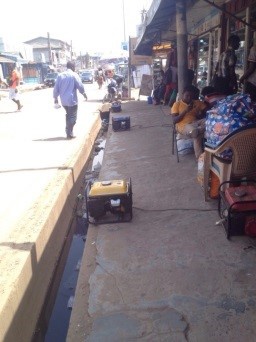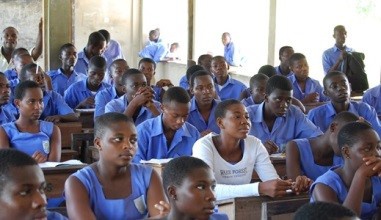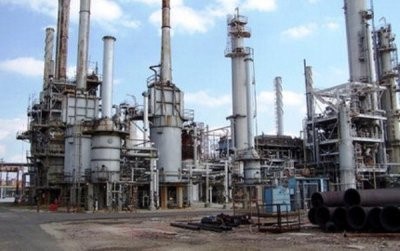- Home - News
- TWI News | TV
- Polls
- Year In Review
- News Archive
- Crime & Punishment
- Politics
- Regional
- Editorial
- Health
- Ghanaians Abroad
- Tabloid
- Africa
- Religion
- Election 2020
- Coronavirus
- News Videos | TV
- Photo Archives
- News Headlines
- Press Release
General News of Thursday, 20 November 2014
Source: Nabil Ahmed Rufai
Report: Dark path in solving Ghana's electricity crisis
The screeching sounds of electric generators engulf the tiptoe lane in Kwame Nkrumah Circle, one of Accra’s busiest business hubs.
It’s a typical working day when the business hub and surrounding communities are experiencing their turn of load rationing by the Electricity Company of Ghana (ECG).
Erratic power supply has become almost normal in Ghana so most shop owners and households have a generator on stand-by to use when the main supply of electricity is cut.
Although fuelling the generators is very expensive, business owners have to bear the brunt.
“I buy a gallon of petrol for GH 15 cedis to power my small generator. It takes about 2 hours and it’s finished. My business is not making profit nowadays because it is expensive to use the generators,” says Ali, a phone shop owner at tiptoe lane.
In spite of the deafening noise that greets you at the tiptoe lane in Circle, traders and shop attendants are not bothered by the effect of high level of noise to their health.

Shop owners use electric generators when their lights from ECG go off
The load management exercise which started to intensify since 2009 has affected the socio-economic development of the country including health care delivery and education.
Lilian Bempong, a form three student of St. Johns Senior High School says her education is seriously being affected.
“Sometimes you will think it’s not time for your house to have load shedding and unexpectedly the light goes off. This mostly happens when I am doing my assignments. Internet connection is cut off and I am not able to do enough research for my assignment”.

The impact of the electricity crisis in Ghana on businesses and socio-economic development of the country cannot be underestimated. Displeased citizens continue to protest in order to mount pressure on government to rectify the situation.
The load shedding exercise has intensified and the time table is no longer being followed. The ECG which receives the greatest backlash says it cannot do much to solve the problem and has attributed the company’s inefficiency to the loss of revenue through high illegal electricity connections in business hubs and residential areas as well as inadequate generation of electricity by Volta River Authority (VRA), GRIDCO and Asogli.
Ghana was first hit with a major electricity crisis in 2006 due to a decline in rainfall patterns. The country’s source of electricity has been hydro for many decades with an installed capacity of 2,443 megawatts.
Governments over the years have battled to ensure that the energy crisis is resolved. However, lack of firm commitment and effective administration of policies has left the country in a quagmire.
Nigeria agreed to supply gas to Ghana to power its thermal plants in 2007 through the West African Power Pool agreement. The project, West African Gas Pipeline, has failed to deliver hence forcing the country to establish its own source of gas supply through the Atuabo Gas Processing Plant in 2011.
The Atuabo Gas Processing Plant has started operation, but not without controversies surrounding it. The Energy Commission of the country wants the introduction of gas into the plant to be halted citing issues about mechanical completion of the Gas Processing Plant. It claims the mechanical completion dossiers are substandard.

Atuabo Gas Project
According to the 2010 Wholesale Power Reliability Assessment report, Ghana loses between 2 and 6% of Gross Domestic Product (GDP) annually, excluding other indirect costs of lost economic output as a result of insufficient power supply.
There have been several promises and timelines given by various governments since the power crisis begun. The current president, John Mahama has assured of an increase in the country’s power generation capacity to 5000 megawatts by 2016.
So far an additional 400 megawatts installed capacity of electricity has been added to the 2,443 megawatts through the Bui Hydroelectric Dam project but it is currently producing only 90 megawatts of electricity.
A World Bank report, says Ghana has the right energy sector policies but is failing to implement them. The country is yet to fully adopt alternative sources of energy such as Solar and Biomass.
Writer's Email: ahmed.nabil38@gmail.com











